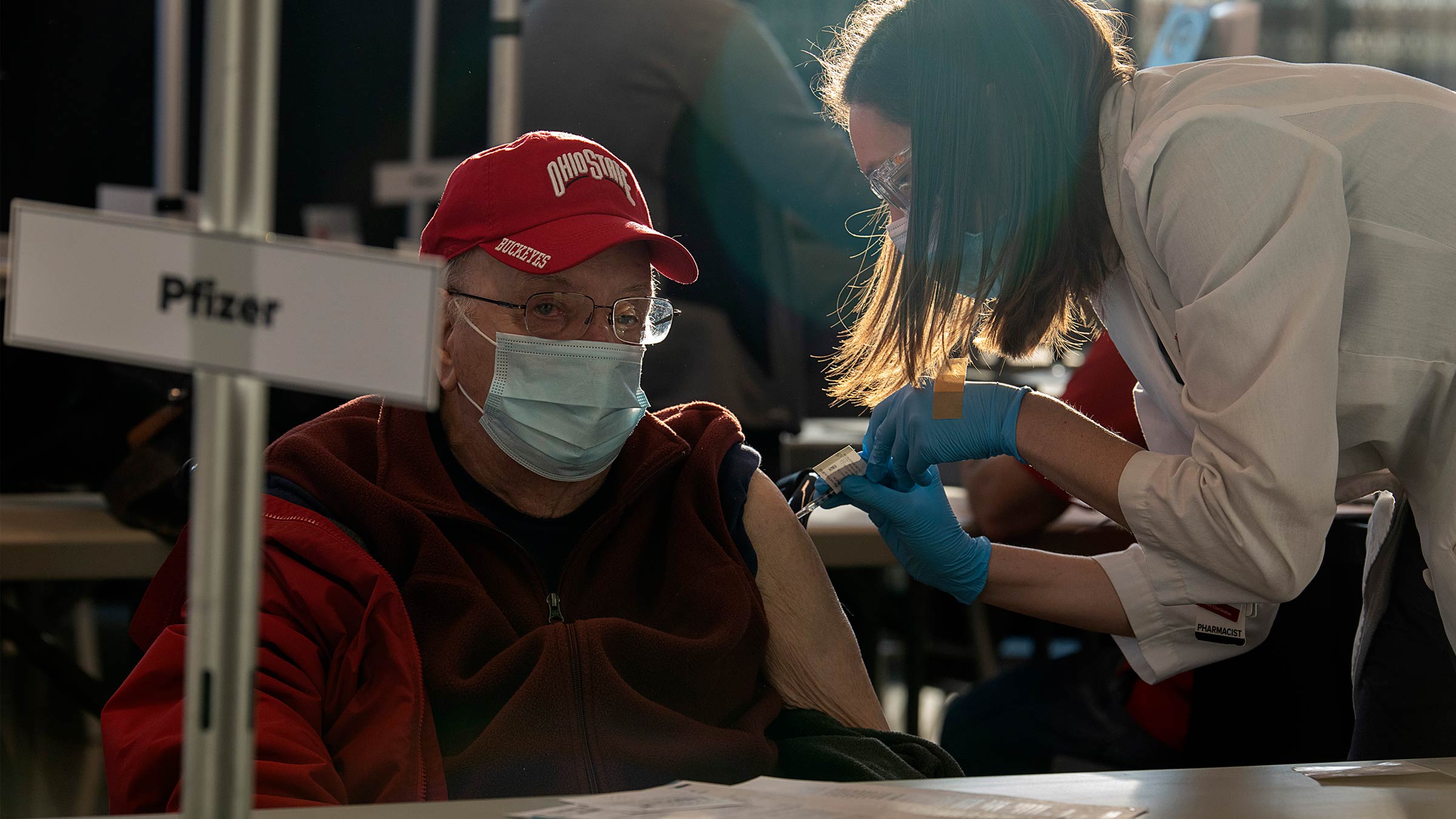
Editor’s note: As what we know about COVID-19 evolves, so could the information in this story. Find our most recent COVID-19 articles here and learn the latest in COVID-19 prevention at the Centers for Disease Control and Prevention. Some photos and videos on this site were filmed prior to the COVID-19 outbreak or may not reflect current physical distancing and/or masking guidelines.
At the end of 2020 and through the beginning of 2021, the CDC rolled out recommendations for a one- or two-dose primary series of the three COVID-19 vaccines available in the United States.
Later in 2021, the CDC recommended that people who are immunocompromised receive a third dose of mRNA vaccine to complete a primary series.
After identifying evidence of waning effectiveness of the vaccines in preventing COVID-19, the CDC recommended that anyone 18 years or older who completed a primary vaccination series of the mRNA COVID-19 vaccine at least six months prior should get a booster dose, and that anyone who received the Johnson & Johnson COVID-19 vaccine at least two months prior should get a booster dose as well. More recently, the CDC recommended anyone 12 years and older who received a primary series with Pfizer should get a booster at least five months after completing their primary series.
As a result of these recommendations, many Americans received booster doses of the COVID-19 vaccine in the late summer and fall of 2021. If you were one of them, you may be wondering — when’s my next recommended dose?
Who’s eligible for a fourth (booster) COVID-19 shot?
Moderately or severely immunocompromised people might be eligible for a fourth shot (booster) now, depending on when they received their third dose.
In 2022, the CDC updated its guidance for moderately or severely immunocompromised people, based on the available data.
Today, people defined as moderately or severely immunocompromised are eligible for a booster dose three months after their third dose of the COVID-19 vaccine. For moderately or severely immunocompromised people, the “primary vaccination series” consists of three doses of an mRNA vaccine or two doses if the first vaccine was from Johnson & Johnson.
If I’m eligible for a fourth shot (a booster), how do I get it?
At The Ohio State University Wexner Medical Center, eligible immunocompromised patients can schedule their next booster through MyChart to get it at Ohio State Outpatient Care Upper Arlington.
If you’d like to schedule by phone, it’s recommended that you call the clinic you typically visit for care for your immunocompromising condition. You can even receive a booster the same day at an ambulatory appointment if the appropriate vaccine is available.
If you’re not a patient at Ohio State or you just have further questions about your eligibility or whether another COVID-19 shot is right for you, contact your primary health care provider for additional help understanding the risks and benefits of vaccination for your individual health.
Who’s “moderately or severely immunocompromised”?
The CDC provides a definition for this group that includes people receiving certain types of cancer treatments, organ or stem cell transplants, drugs that suppress the immune response or those with certain acquired or primary immunodeficiencies.
I’m eligible for another shot, but after my last shot, I got COVID-19. What should I do?
The CDC recommends that if you’re due for a shot, either to complete your primary series or for a booster, you can receive this as soon as you’ve recovered from COVID-19 AND you meet the criteria for stopping isolation.
For more a more detailed explanation, this CDC page can help.
Do all these additional doses mean the vaccines aren’t really working?
Based on available data, we’re seeing that COVID-19 vaccines are working to prevent severe cases of COVID-19, hospitalization, and death from the disease. That’s what scientists had hoped the vaccines would do.
We’re seeing waning protection over time, and booster shots help vaccinated people keep their protective immunity longer.
Booster shots are used for other well-known vaccines. For example, a tetanus-diphtheria booster is recommended every 10 years to maintain a high level of immunity.






